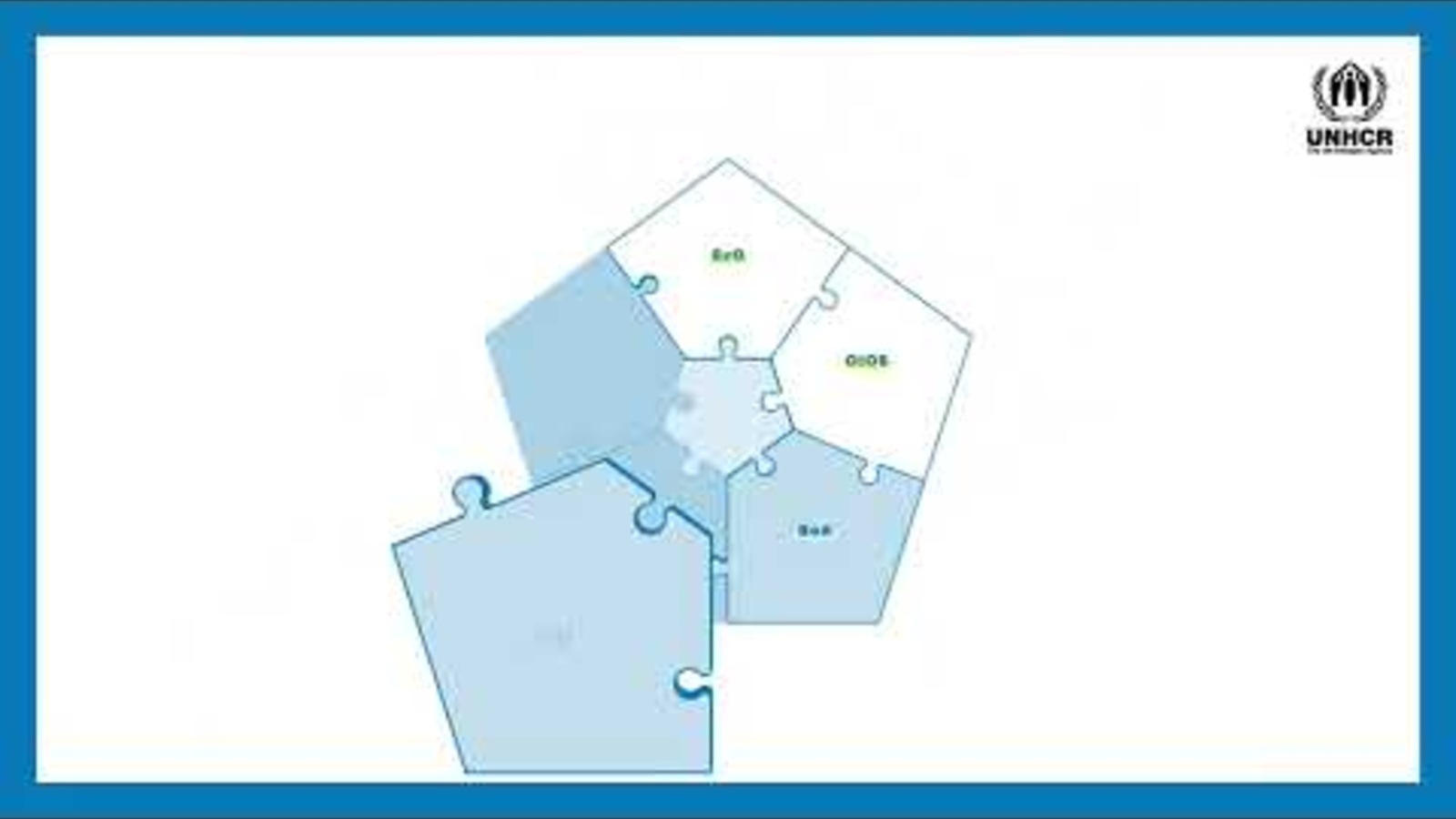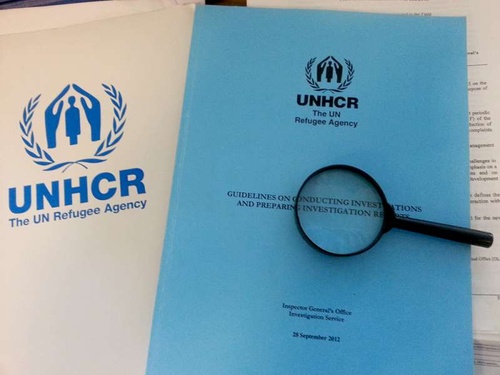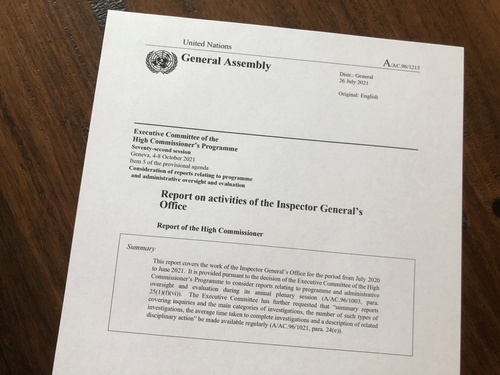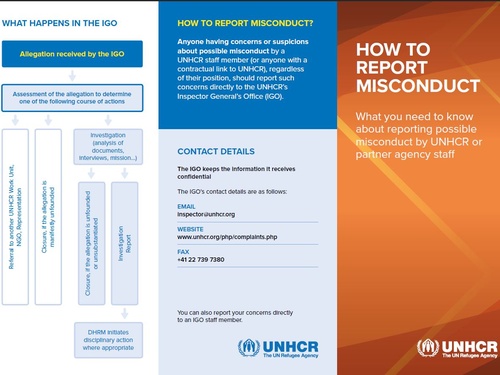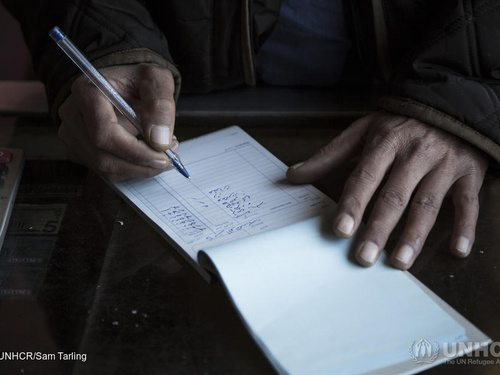Inspector General's Office (IGO)
Inspector General's Office (IGO)

Through strategic oversight and investigation services, the work of the IGO helps deter fraud and abuse and improve the efficiency of UNHCR’s programmes and operations. It contributes to the integrity of the organization and its accountability towards people of concern, host communities, donors and other stakeholders.
The Inspector General is fully independent, reporting to the High Commissioner directly and appointed on a fixed term, non-renewable basis with safeguards in place over his/her removal.
The role of the IGO at UNHCR
Strategic Oversight Service
The role of the Strategic Oversight Service is to strengthen the organization-wide response to oversight findings and facilitate coherence of all oversight functions by ensuring that there are no gaps or duplication. The Service is responsible for communication and coordination with internal and external oversight providers. In this context, the Service manages the relationship with the UN Office of Internal Oversight Services (OIOS), which carries out internal audits and advisories. It also acts as focal point for the UN Joint Inspection Unit (JIU) and provides secretariat support for the Independent Audit and Oversight Committee (IAOC). Strategic Oversight also undertakes strategic analysis of oversight findings, and conducts specific reviews and inquiries as appropriate.
Investigation Service
The Investigation Service is responsible for receiving and assessing misconduct complaints related to UNHCR personnel, partner staff, vendors or contractors. Where appropriate, the Investigation Service conducts investigations into allegations of misconduct. Within UNHCR, it has the sole authority to do so. It also gathers, collates, processes and analyses information in order to detect or disrupt misconduct and prevent or mitigate risks thereof. These risks could be operational, financial, organizational/reputational, managerial or cyber-related in nature.
Video: Independent Oversight at UNHCR
Watch the video (in English) to learn more about the oversight landscape at UNHCR.


